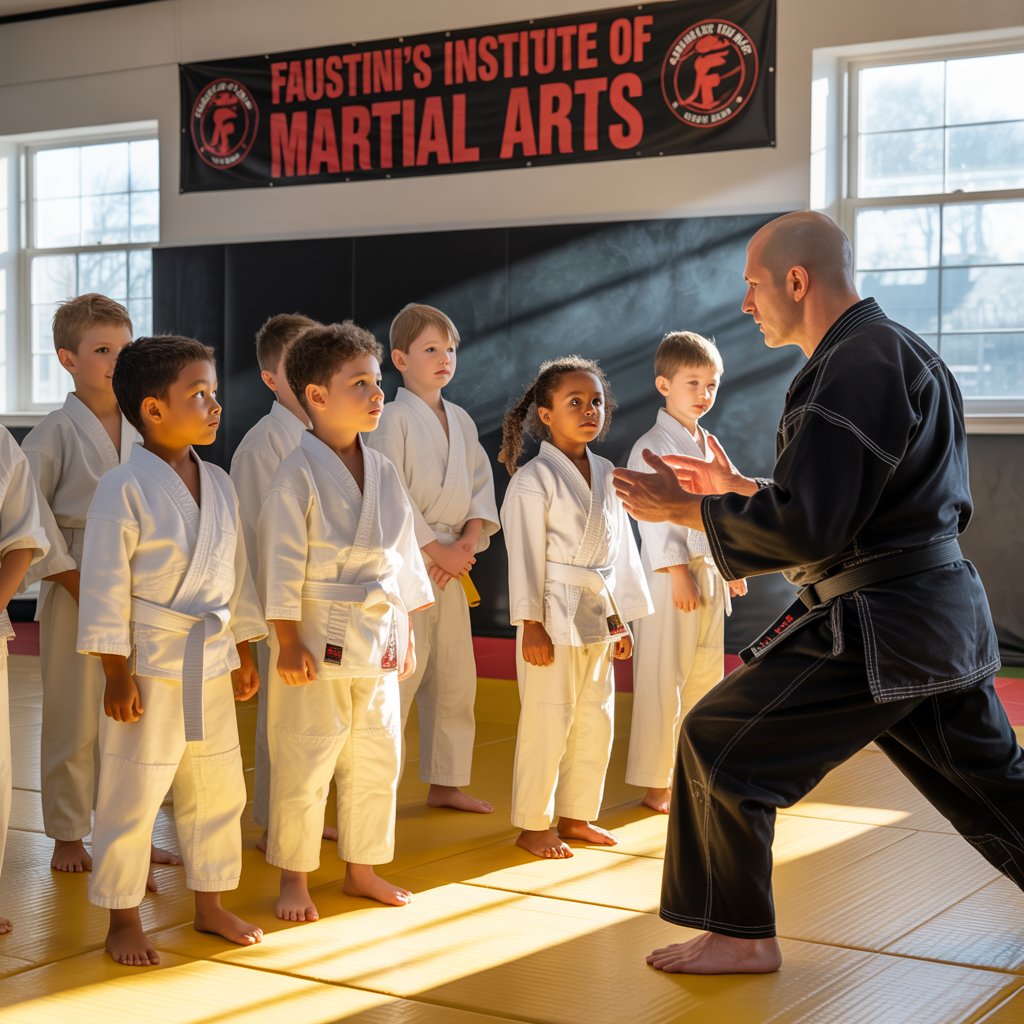Introduction
In a world where children are bombarded with distractions and challenges, finding a holistic approach to their development is essential. One of the most enriching experiences available today is kids' martial arts. Engaging in karate classes for kids not only teaches them self-defense but also instills invaluable life lessons that extend well beyond the mat. This article will delve deep into the profound https://paramus-kickboxing-north-jersey.iamarrows.com/taekwondo-techniques-that-teach-respect-and-honor-in-young-students impacts of children's martial arts classes, showcasing how they contribute to confidence building for kids, discipline for children, and overall character development.
Kids Martial Arts: An Overview
What Are Kids Martial Arts?
Kids martial arts encompasses various disciplines such as karate, taekwondo, and judo specifically designed for children. These classes introduce young learners to fundamental techniques while fostering an environment of respect, focus, and friendship.
Types of Martial Arts Programs Available
- Karate Classes for Kids: Focus on striking techniques and kata. Taekwondo for Kids: Emphasizes kicking techniques and flexibility. Judo: Concentrates on grappling and throws. Mixed Martial Arts (MMA): Combines techniques from various martial arts styles.
Why Choose Martial Arts for Your Child?
Choosing martial arts for your child can be a game-changer. These programs are not just about physical fitness; they provide tools for managing emotions, improving concentration, and developing social skills.
Beyond the Mat: Life Lessons from Kids' Karate Classes
1. Confidence Building for Kids
How Does Karate Boost Self-Esteem?
One of the standout features of karate is its ability to foster confidence in children. As kids learn new skills and progress through belt ranks, they experience a sense of achievement that reinforces their self-worth.
Real-Life Examples of Confidence Gains
Many students report feeling more comfortable speaking in public or trying new activities after taking karate classes. A shy child may find their voice through sparring exercises and teamwork drills.
2. Discipline for Children
The Importance of Discipline in Martial Arts Training
Discipline is at the core of every successful martial artist's journey. In a typical class setting, students learn the value of practice, punctuality, and respect toward instructors and peers.
Creating Structure Through Routine
By adhering to a consistent schedule of practice and training regimens, children cultivate self-discipline that can translate into other aspects of their lives—be it academic performance or personal relationships.
3. Self-Defense Classes for Kids: More Than Just Fighting Techniques
Understanding Self-Defense Principles
While many parents sign their kids up for classes with self-defense in mind, these courses teach much more than just physical combat skills. They also emphasize awareness of surroundings and conflict avoidance strategies.
Empowering Children to Protect Themselves
Arming children with knowledge about self-defense empowers them to feel safer in everyday situations—whether that’s standing up against bullying or navigating tricky social dynamics at school.
4. Focus Improvement Activities in Martial Arts Training
How Does Karate Enhance Concentration?
Martial arts require immense focus—whether executing a complex kick or memorizing a kata sequence. This intense concentration helps children hone their attention span over time.
Activities that Encourage Focus Development
- Practicing katas Sparring sessions Meditation exercises
Each activity plays an essential role in promoting mental clarity and sustained attention among young practitioners.
5. Character Development through Teamwork in Youth Martial Arts Programs
Learning Cooperation through Group Exercises
Participating in youth martial arts programs teaches kids how to work together as part of a team while simultaneously fostering individual growth. This balance helps develop unique social skills essential for adulthood.
Building Friendships on the Mat
The camaraderie formed during training strengthens peer relationships as students support each other’s growth—a vital aspect often overlooked by parents when considering martial arts classes.
6. Health Benefits: Child Fitness Programs Through Karate Training
6.1 Physical Fitness Gains
Karate provides an excellent outlet for physical activity—helping combat childhood obesity while enhancing coordination, strength, flexibility, and aerobic capacity.

6.2 Mental Health Advantages
Engaging in regular exercise has been linked with reduced anxiety levels among children while improving overall mood stability—a significant benefit often emphasized within martial arts communities.
FAQs About Kids' Karate Classes
1. What age should my child start karate?
Most schools offer beginner karate classes starting as early as four years old; however, many recommend starting around ages six to seven when children have developed better motor skills and focus abilities.
2. How long do kids typically stay in martial arts?
Children often remain involved until they reach adolescence; however, some may continue pursuing advanced training into adulthood depending on personal interests and goals.
3. Is karate safe for my child?
Yes! With proper supervision from trained instructors using age-appropriate activities geared toward safety precautions ensures that risks are minimized during training sessions.
4. Can martial arts help with bullying?
Absolutely! Learning self-defense principles empowers victims by boosting confidence levels while providing practical tools needed when facing bullies directly or indirectly confronting them effectively without resorting to violence themselves!
5. What should my child wear to class?
Most schools provide uniforms (gi); however; it’s recommended keeping attire simple—comfortable clothing allowing free movement works just fine too!
6. Do I need previous experience before enrolling my child?
No prior experience is necessary! Most beginner karate classes cater specifically towards newcomers allowing each student space required learning basics progressively alongside others starting out alongside them!
Conclusion
Enrolling your child in karate classes opens doors to countless opportunities beyond mere physical fitness—it lays down foundational life lessons they will carry throughout adolescence into adulthood! From confidence building for kids through discipline learned via practice routines all aspects covered contribute significantly towards positive character development transforming young minds shaping future leaders today tomorrow onward!
In short? Investing time into children's martial arts education pays dividends not only academically but personally creating well-rounded individuals ready tackle challenges head-on whatever comes next!
In conclusion: "Beyond the Mat: Life Lessons from Kids' Karate Classes" encapsulates everything wonderful within this journey teaching invaluable strategies enhancing overall quality life experiences moving forward!